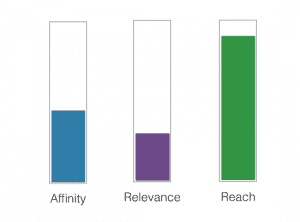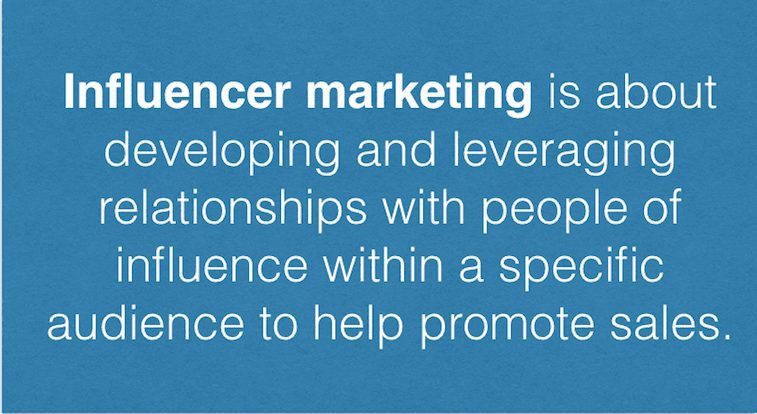Influencer marketing is definitely becoming a more common topic among marketing teams. It’s still early days, though, and many brands are struggling to find their way. Resistance at the senior management level is frequent, especially since the answer to the difficult ROI question is typically illusive. There are several strong reasons why influencer marketing is an appropriate addition to the marketing mix. For example:
- the reach of vloggers and bloggers with specific audiences
- the relevance of a message delivered by a dedicated fan
- the power of word of mouth
- the distrust of traditional marketing
- the decreased attention span of consumers on traditional media (aka the proliferation of messages and channels)
- …
Questions abound on how to do influencer marketing

If the concept of influencer marketing is alluring and potentially rewarding, there are many questions “out there” with regard to constructing a powerful influencer marketing program. These are the types of questions I hear most:
- how to choose the right influencers (with the right affinity for the brand)?
- how to determine the relevance of the influencer’s audience with the brand?
- should influencers be paid?
- is an affiliate model appropriate?
- is better to have many influencers with smaller audiences or one big influencer?
- how to scale?
- how to use influencers effectively on an international scope?
- how far to let influencers “play” with one’s brand and assets?
- how to gauge success?
- how to link the initial investment with the end result (i.e. attributing the influencer’s actions to sales)
- …
All these questions are appropriate and vital. However, they miss one very important point: the selection of the right people inside the brand to manage the relationships.
Why Is Influencer Marketing Strategic?
First, here is my definition of influencer marketing.
Influencer marketing -- at its core -- is about developing and leveraging relationships with people of influence within a specific audience to help promote sales Share on X
In this sentence, there is a fundamental component that is, inherently, difficult for large companies to contend with: creating person-to-person relationships. Here are some of the issues that companies face in this regard:
- employees are professionals
- employees must adhere to corporate guidelines and hierarchy
- employees change positions and paths as they move up the corporate ladder
- managing employees who become too important (i.e. in their relationships with influencers)
- how to scale person-to-person relationships…
Revealing Your Brand Values

By definition, a powerful relationship is deeply personal, where trust is mutual and both emotions and values are shared. As a result, in a business environment, the question becomes to what extent an employee can remove the corporate veil and develop a personal friendship with an external party. What are the acceptable behaviors for an employee to demonstrate commitment and trustworthiness with an influencer? How much red tape must the employee go through in order to activate an influencer and/or respond to specific requests? And, most importantly, how fundamentally aligned is the employee him or herself to the brand’s values?
In a corporate world, it’s perfectly normal for an individual to be promoted or moved along to another brand (or fired, for that matter). From the influencer’s perspective, if the relationship has deepened and trust has been established with that individual, this can quickly be experienced as a mini betrayal. Once burned, the natural conclusion for the influencer will be that it is strictly a commercial engagement with an institution. And that quickly means the authentic charm and enthusiasm will wear off.
It is my belief that influencer marketing — when done well — actually helps a brand to define its truest values — as to how they must be expressed at the granular, individual level. If influencer marketing is about developing relationships, then we are at the epi-center of the need for branding to get personal. Share on X
I encourage your reactions!












Everything published made a ton of sense. However, consider this, suppose you
added a little information? I ain’t saying your information isn’t good., however what if
you added a title to possibly grab a person’s attention? I
mean Influencer Marketing Is Strategic For Your Brand is kinda boring.
You ought to look at Yahoo’s home page and note
how they create article titles to get people interested.
You might add a video or a related pic or two to grab people
excited about what you’ve written. In my opinion, it could make
your posts a little bit more interesting.
I do not know whether it’s just me or if everyone else experiencing problems with your site.
It appears as though some of the text on your posts are running off the screen. Can somebody else please comment and let me know if this
is happening to them too? This might be a issue with my
web browser because I’ve had this happen previously. Thank you